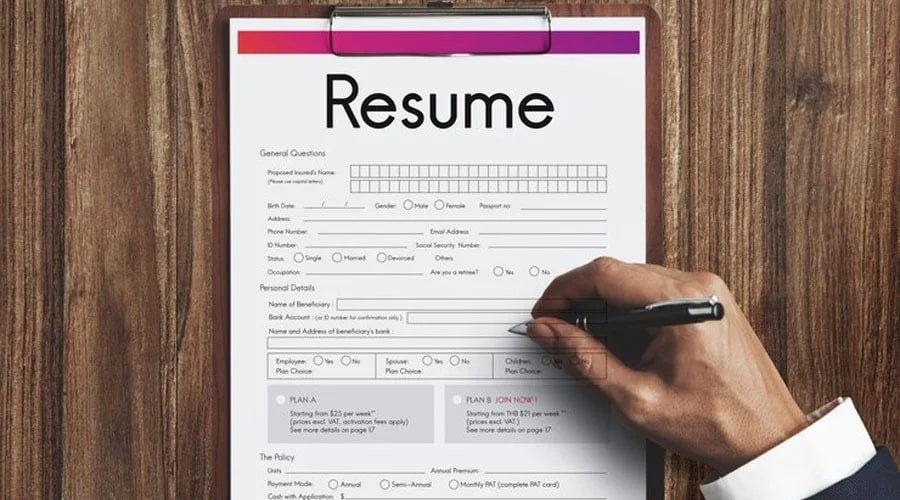Useful Guide To Get A Job In Another Country
Working abroad allows you to expand your skills and gain experience in a different cultural environment. The practical knowledge you obtain offers a chance to improve both your professional and personal life.
The new and deeper understanding you'll receive from becoming a part of an overseas workforce is like no other travel experience you've had before. It gives you the chance to form long-lasting relationships with people from other countries, see how the rest of the world operates, and learn things that you normally would not in your own country. You might find a better way of doing things while working abroad that could transform your career, but at the least, you'll gain unique experience and an expanded perspective. Working in another country, rather than just visiting it, allows you to immerse yourself in the culture and have a deeper and more fulfilling experience.
1. Determine the type of job you want
 |
| Photo: Getty Images |
Before you find a job, it's important to consider the position you'd like to obtain, the industry you want to work in, and the skills you desire to learn. Once you narrow down these factors, determining the best fit for you can become easier. Other factors to consider include the specific location you want to travel to and how long you want to—and are allowed to—work there.
If you're unable to find immediate employment, consider a short-term job where you can work in the meantime. For example, hostels often have opportunities for you to work on a short-term basis. Be open to filling a need, such as an English language instructor; it could make it easier to find a job in a foreign locale.
2. Networking and using social media
 |
| Photo: Small Business Trends |
Use social media to inform associates you're looking for work overseas. Take advantage of social media websites to look for positions. In addition, use social media to promote yourself. Create a LinkedIn account. Establish a professional profile on Facebook and Twitter. By using social media, you'll expand your reach.
Attend job fairs with international employers. Most major cities host an overseas job fair every couple of months. To find an overseas job fair, run an internet search for overseas job fairs in large cities near you. When you attend these fairs, you'll find a variety of employers and staffing companies recruiting people for jobs in other countries.
Inquire with your present employer about a transfer. Depending on the size of your current employer, you might be able to request a transfer overseas. Large multinational corporations often favor transferring current employees rather than hiring new ones. Talk to your supervisor or manager to find out if a transfer is an option.
Establish and strengthen connections you have in the country. The more people you have in your network, the higher the chances that you'll find a position in the country and industry you want to work in.
3. Decide what country you want to work in
 |
| Photo: Nipponlink |
Many countries offer job opportunities for qualified international candidates. Once you decide on the type of job you want, find a country you're interested in living in that facilitates this choice. Prior to starting work and making the move to another country, consider a short-term trip abroad to help you learn the culture, get acquainted with the location and make face-to-face connections. This is also a great opportunity to line up in-person meetings or interviews with prospective employers.
4. Looking for job openings and applying
 |
| Photo: GCFLearnFree |
Contact a staffing or job placement company. Staffing and job placement companies are employed by other companies to find job candidates with certain skills. Sign up with one of these companies. By contacting and registering with a staffing company, you'll dramatically increase your chance of getting a job.
Search the job sites of multinational companies. Depending on your career and skill set, you may be able to find a job by looking at the job openings on the employment pages of large multinational corporations. Focus on companies in industries that you have the skills to work in.
Look on international job search websites. Set aside some time and look through job postings on international job websites. International job sites will have more postings outside your home country than other websites. Consider websites like:
- JobsAbroad.com
- OverseasJobs.com
- Monster.com
Visit the country to meet people and look for jobs. If you're having trouble locating work or you want to increase your chances of getting a good job, book a short trip to the country you want to work in. This way, you'll be able to get a better idea of the specific circumstances of the place. In addition, you may be able to meet people and make contacts who can help you get a job.
Visit the offices of job placement firms when you arrive in the country.
Look through local newspapers for job postings.
Learn about the culture of specific companies you want to work for. Before submitting your resume or interviewing, do some research on the company itself. Visit the company's website and read news articles about the company. By doing this, you'll gain more of an idea of the type of candidate the company is looking for, and you will be better able to market yourself to the person in charge of hiring.
5. Apply for a visa or work permit
 |
| Photo: elightnr |
Because some employers require you to have a visa or work permit to work with them, it's important to start the process as soon as possible—especially before you move to the country where you want to work. In some cases, your prospective employer needs to agree to sponsor you before you can be issued a work permit or visa. Contact the company you're interested in to determine if they can help you meet these requirements. Foreign government embassy sites can also provide you with information regarding their nation's labor rules.
6. Localize your resume
 |
| Photo: Analytics Insight |
As with any job, it's important to tailor your resume to match the job you're applying for. Refer to the job posting and when applicable use the keywords used in the description. The keywords you use on your resume should match the country's language. It can also be beneficial to translate your resume into the official language if you're fluent.
It's also important to abide by any resume standards and expectations. For example, some countries may prefer a more detailed, two-page resume over a shorter, more concise document. Your resume needs to reflect not only the job you're applying for but also the company’s cultural environment.
What are the benefits of getting a job in another country?
Working in another country provides you with several benefits you can take with you throughout your professional career. Here are some of the benefits of getting a job abroad:
Different cultural experiences
Getting a job in another country allows you to experience different cultures and helps you build cultural awareness. Working abroad helps you understand global markets and how they operate. Because business isn't conducted in the same manner across every industry and country, working overseas provides you with insight to help you learn various practices. Also, many employers look for employees with experience in different business cultures because of their involvement in international markets.
Strengthens resume
Working abroad exposes you to new professional experiences where you can obtain added skills and knowledge in your field. The experience you gain can be added to your resume to aid your chances of a job in a related field in the future. An overseas job can also help you learn new languages, understand and other qualifications that can be appealing to hiring managers.
Increased independence
Working abroad allows you the opportunity to build self-confidence and self-reliance. Your newfound independence can help develop your future professional and personal life.
Improved adaptability
Because many international companies may operate in a different manner than what you're used to, getting a job overseas can improve your flexibility and adaptability. Making the move itself exposes you to new situations that you might not have navigated before. Your adaptability can be applied to any situation and used in any industry after your time abroad has ended.
 | How To Protect Your Hair From Sun Damage With the summer coming, it is essential to protect your body from the direct sunlight, including your hair. Here are some of the best ways ... |
 | Simple Guide On How To Learn To Swim The Safest Ways Swimming is one of the most important skills for survival and also helps with fitness and health. Here is how you learn how to swim ... |
 | The Best Tips For A Low-Budget Skincare Skincare does not have to be expensive, since there are many ways to keep your skin healthy with natural remedies and methods. |
Recommended
 Handbook
Handbook
Lunar New Year 2026 (Year of the Horse) Weather Forecast
 Handbook
Handbook
Promoting Vietnam’s Ao Dai at London Fashion Week 2026
 Handbook
Handbook
Dinh Bac Wins Golden Boot at 2026 AFC U23 Championship
 Handbook
Handbook
Vietnamese Banh My Shines on Global Culinary Map
 Handbook
Handbook
Vietnam Ranks Among World’s Top 4 Most Attractive Culinary Destinations
 Handbook
Handbook
Vietnam’s AI Law to Require User Notification before AI Interactions
 Handbook
Handbook
10 Vietnamese Films Set For Screening In US To Mark 30 Years Of Diplomatic Ties
 Handbook
Handbook


